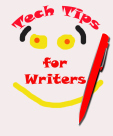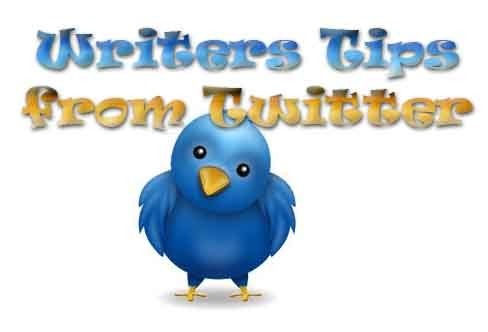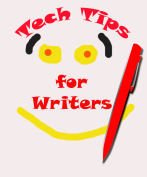Jacqui Murray's Blog, page 184
August 8, 2012
The Problem With Voice

Your voice identifies your writing
Before I discuss the problem, let me define it. Voice is what makes Winston Churchill’s words as recognizable as his face. Or Rodney Dangerfield one-liner’s his unique take on the world. You wouldn’t confuse the way Erma Brombeck talks with June Cleaver, would you? Why? It’s the words they use, their syntax, the way they present their thoughts–it’s their voice.
The problem with voice is it has two layers.
First, it has to do with your characters. A reader should recognize your characters by the way they speak their dialogue, think their interior monologues, solve their problems, act in scenes. These are unique to a person, not formulaic. Think about your friends. Put them in a conversation with a fictional detective. One might focus on the fear of an authority figure questioning them. Another might wonder if the man is single. Those focuses would come out in how they act and speak.
That’s their voice and no one should sound like any one else in your novel. For novice writers, you need dialogue tags to tell who’s talking. Not so with the pros. The antagonist should fiddle with her hair as she speaks. The protagonist might speak formally, carefully precisely, never using contractions. Another character might sway side-to-side. Those differences between speaking styles are what often escapes even experienced writers. To develop the character’s voice, you must get inside their head every time it’s their scene. As a fellow writer once told me, “The cost of rushing through this step is, your character is either unbelievable, unlikable, or both.”
Second, voice has to do with you as writer. Here’s what some of the top names in the publishing industry say about a writer’s voice:
A Writer’s Coach by Jack Hart says, “…voice is the writer’s personal style coming through in the writing. It’s as complex and varied as human personality itself.”
Writing the Blockbuster Novel by Albert Zuckerman says, “One precious quality int he best authors, which I believe is largely innate but is sometimes slowly acquired over time, is what editors and critics call ‘a voice’. The line-by-line writing of J.D. Salinger doesn’t sound like anyone else’s. Stephen King …has a sublime gift for the cadences and nuances of small-town American idiomatic speech…”
Writing the Breakout Novel by Donald Maas says, “A true breakout is… a breakthrough to a more profound individual expression. It demands that an author reach deep inside to find what is truthful, original, important and inspiring in his own world view. It requires that the author be true to his own ‘voice’.”
How do you develop your voice as a writer? Ben Yagoda calls it the “sound on the page”.
How do you release that inner muse that allows you to be unique on the page?
Jacqui Murray is the editor of a technology curriculum for K-sixth grade, creator of two technology training books for middle school and four ebooks on technology in education. She is the author of Building a Midshipman , the story of her daughter’s journey from high school to United States Naval Academy. She is webmaster for six blogs, an Amazon Vine Voice book reviewer, a columnist for Examiner.com , Editorial Review Board member for Journal for Computing Teachers, Cisco guest blog, IMS tech expert, and a bi-weekly contributor to Write Anything. Currently, she’s editing a thriller for her agent that should be out to publishers this summer. Contact Jacqui at her writing office or her tech lab, Ask a Tech Teacher.
Filed under: characters, communication, dialogue, writers resources, writing Tagged: Ben Yagoda, June Cleaver, personal style, publishing, tone, voice, writer, writers resources

August 7, 2012
Tech Tip for Writers #69:Make your desktop icons Big or Little

Tech challenged? Read on
Tech Tips for Writers is an (almost) weekly post on overcoming Tech Dread. I’ll cover issues that friends, both real-time and virtual, have shared. Feel free to post a comment about a question you have. I’ll cover it in a future Tip.
Q:The desktop icons are tiny on my desktop. I don’t know how it happened, so I don’t know how to undo it. Please help!
A: This solution I learned in self-defense, like many other tips I share, when my students figured it out and made my desktop icons HUGE or tiny. Here’s how you fix that:
Highlight all desktop icons by click and dragging a box around them
Push Ctrl and roll the mouse wheel.
It enlarges or delarges for you
That’s it. How wonderful. I no longer have to squint at icons too small for my eyes.
Questions you want answered? Email me at askatechteacher@structuredlearning.net and I’ll answer it within the next thirty days.
To sign up for Tech Tips delivered to your email, click here.
Jacqui Murray is the editor of a technology curriculum for K-sixth grade, creator of two technology training books for middle school and four ebooks on technology in education. She is the author of Building a Midshipman , the story of her daughter’s journey from high school to United States Naval Academy. She is webmaster for six blogs, an Amazon Vine Voice book reviewer, a columnist for Examiner.com , Editorial Review Board member for Journal for Computing Teachers, Cisco guest blog, IMS tech expert, and a bi-weekly contributor to Write Anything. Currently, she’s editing a thriller for her agent that should be out to publishers this summer. Contact Jacqui at her writing office or her tech lab, Ask a Tech Teacher.
Filed under: tech tips for writers Tagged: tech tips, writing

August 6, 2012
21 Tips About Writing From Twitter

Tips I got from Twitter about writing
I’m a writing tip junkie. Any tweet or blog post or random comment that begins, “Here’s the best tip I’ve ever gotten about writing…” makes me click. What’s thirty seconds of time when I could pick up a gold nugget that changes my writerly life?
Mostly, 1) I already know them, 2) they’re pedestrian, or 3) they’re wrong, but occasionally I get one–or twenty-one in this case–that I think are worth passing on. See if you agree:
Don’t try to be a writer
Don’t expect to make any money.
All plot twists must be foreshadowed in the beginning of the book. But use twists to keep middle of story alive.
As Colm Toibin said at Shoreditch, ‘Just get the f****** book written. Oh, and then edit until your eyes bleed.’
Although I write on a laptop, I like to tuck a pencil behind my ear. That way I can stab people who interrupt me.
Minimize self-promotion on social networks
Proofread carefully to see if you any words out
If you write for excitement, you’re better off dousing yourself in gasoline and lighting a match
If you’re a hammer, everything in the world looks like a nail. If you’re a writer, everything looks like a plot.
It’s not the size of your words that matters
Successful writers establish long-term writing goals for themselves and long-term story goals for their protagonists and then set out to complete a series of short-term goals they believe will move them and their characters toward those final goals.
Always be willing to change… repair mistakes, change your cover, change your blurb, change your marketing, and change your idea of what it means to be an indie author. We are living in a malleable time.
Separate your editing from your writing. Otherwise you’ll be too critical when you need ideas to flow.
If you claim writing is important, you’ll find the time to write. It’s that simple.
Poetry As A Road to Prose – When Tolkien couldn’t express his thoughts in prose he “wrote much of it in verse.” He writes “The first version of the song of Strider concerning Luthien,… originally appeared in the Leeds University magazine, but the whole tale, as sketched by Aragorn, was written in a poem of great length.”
Write at least five times a week. Doesn’t need to be long. Half an hour will do. But if you keep it up you will get there.
Cut out all those Capital Letters–even in headings (I’m so on the fence on this one)
If you are truly a Writer, you can run, but it’s already in your soul. Have you ever met a retired writer?
Make sure you write what you mean
Sometimes when you can’t write due to life/work/kids, don’t get frustrated, use it as brewing time.
Unless required for voice-related purposes, avoid using “needless to say” or “utilize” or “awesome tits” in your writing. (Women: Fill in the blank: “Awesome _____.”)
What are your favorite tips?
Jacqui Murray is the editor of a technology curriculum for K-sixth grade, creator of two technology training books for middle school and four ebooks on technology in education. She is the author of Building a Midshipman , the story of her daughter’s journey from high school to United States Naval Academy. She is webmaster for six blogs, an Amazon Vine Voice book reviewer, a columnist for Examiner.com , Editorial Review Board member for Journal for Computing Teachers, Cisco guest blog, IMS tech expert, and a bi-weekly contributor to Write Anything. Currently, she’s editing a thriller for her agent that should be out to publishers this summer. Contact Jacqui at her writing office or her tech lab, Ask a Tech Teacher.
Filed under: writers tips Tagged: twitter, writing tips

August 3, 2012
The 15 Biggest Writing Blunders (And How To Avoid Them)

Writing blunders
It’s hard enough to get published without making rookie mistakes. Those are red flags that tell an agent to stop reading, deposit your baby in the trash and go to lunch.
I hate when that happens (one actually called me and told me where he tossed mine), so I’ve collected the fifteen most common cures my agent friends tell me would keep them reading.
Place the reader in time. Give him/her a clue as to the time of day, like a lunch crowd or rush-hour traffic, so s/he can pay attention to the story. Same goes for the time of year, the season. Are leaves falling? Is heat reflecting off the sidewalk? Do people wear short shorts and crop tops?
Place the reader geographically. It makes a big difference if the character is in an office or a restaurant. That’s easy to get across, too, with ringing phones, clatter of dishes–stuff like that. Once you’ve opened the chapter with these few details, the reader can relax into your prose.
Make sure you’re clear on who your audience is. Who do you write for? Think about it right now: You’re probably writing a novel or you wouldn’t be reading this post. Who do you think will read it? What’s their age–adults, young adults, children–and what’s their genre–action thriller, science fiction, literary? Your word selection and plot construction is quite different depending upon how you answered these questions. Decide that before you start writing. If it’s too late for that, put your pen down and decide now.
Don’t be afraid to use words that fit your writing style but are longer than one syllable. Beautiful words might be your signatures as it is for Elizabeth George. Readers like insider knowledge and learning from what they read. If you love words, allow readers to enjoy them with you.
If you switch POV’s in your story, identify who’s head you’re in by word selection and interior monologue. Don’t have everyone sound vanilla or southern or like you. Then, the only way readers can differentiate characters is by dialogue tags. That’s not professional, nor is it real life. (Click for more on POV)
Your writing style might be informal, but don’t be lazy about it. Make it a conscious decision. Use relaxed prose as your voice, which means you must carry it throughout the novel. (Click here for more on voice)
Don’t switch genres. Pick one and excel at it. Don’t excuse your inability to focus by saying you love all genres and that’s why you jump around. That’s code for ‘I failed at one so I’m trying another’. How many published authors do you read that switch from literary to thrillers? Fiction-nonfiction is about as big a leap as readers will accept.
Remember to vary sentence length to reflect action. A long involved sentence is retrospective and passive. Short snappy sentences are active. Use them.
Don’t think your agent or publisher will correct your grammar and spelling. More likely, they’ll reject your novel because the mistakes annoy them. Put your novel in its Sunday best before anyone sees it. Allow any reader–even your mother–to judge it on the merits, not lack thereof. (Click here for common grammar errors)
DO NOT use exclamation points. Use words to get the excitement across, not punctuation. This is one suggestion everyone I know agrees on, so if you ignore the other fourteen ideas in the list, follow this one.
Remember there are five senses, not one. Add smell, touch, taste to your story. Readers love those details and when they’re not there, your story feels flat. No one lives in a one-sense world.
Wordiness is boring. Writers often get caught up in their art. We love words. I read dictionaries for fun, but most readers aren’t like that. Cut as much as you can. Don’t repeat even if your prose is stunning.
Don’t leave loose ends. As you write your story, make a note of every plot point you started, every subplot no matter how minor, and tie them up by the end of the story. Novels aren’t like real life in that sense. Real life, there are always unresolved issues. In novels, we want everything closed down by the last page. Unless you’re talking about a sequel. Then, by all means, telegraph what you didn’t finish so we want the next book.
Does anyone think cliches are acceptable? I almost skipped this one as too mundane, but decided it was worth mentioning. Cliches show readers what some other writer came up with. You must create your own clever way of saying ‘as flat as a pancake’ or ‘blonde bombshell’ so we see the depth of your talent. That’s just the way it is.
Truncate run-on sentences. This one, as writers, we should have grown out of by now, but I am constantly surprised by how many I find. Use no more than two prepositional phrases in a sentence, two adjectives for each noun, limit adverbs and adjectives in general. That’ll start things. You can build from there.
I’ve avoided these mistakes in my current undertaking, which means I have to move on to the next list of writer’s fixes. I’ll show you that soon.
Jacqui Murray is the editor of a technology curriculum for K-sixth grade, creator of two technology training books for middle school and four ebooks on technology in education. She is the author of Building a Midshipman , the story of her daughter’s journey from high school to United States Naval Academy. She is webmaster for six blogs, an Amazon Vine Voice book reviewer, a columnist for Examiner.com , Editorial Review Board member for Journal for Computing Teachers, Cisco guest blog, IMS tech expert, and a bi-weekly contributor to Write Anything. Currently, she’s editing a thriller for her agent that should be out to publishers this summer. Contact Jacqui at her writing office or her tech lab, Ask a Tech Teacher.
Filed under: writers resources, writers tips Tagged: writers resources, writing, writing blunders, writing tips

August 2, 2012
My Favorite Writing Software is…

What writing software do you use?
Before I tell you about my greatest triumph as a writer, let me back up. True–this one without a doubt is my ultimate accomplishment. It was better than a handsome man in a white shirt standing in the rain. More exhilarating than running into Hannibal Lector in a dark alley after he’s eaten dinner. It made the dog wag his tale so hard, his entire backside shook. What is this amazing achievement?
Drum roll–finding a writing program that Does Everything.
I know. Hose me down with a Valium spray–it’s that titillating.
With a sigh, you ask, what is this great program? It couldn’t be MS Word. Word’s clunky, loads slowly, always telling you how you should write if only you were clever enough (as an old friend used to say–shoulding on you). You can’t find what you want what with everything crowded icon-to-icon on the ribbons, themselves so robust that they take up half your writing real estate (OK, I’m exaggerating, but so does Word when they declare themselves the perfect solution for writers). Who thought that was a good idea? And in my case (because I write non-fic with tables and images and lots of detailed formatting), I have constant nagging annoying problems with corrupt files.
So, you say needlessly, we’re not talking about MS Word. What about Open Office? For those of you unfamiliar with this free open-source word processing software, it’s full-featured, promoted as ‘the leading open-source office software suite for word processing’. It’s set up like Word, so would seem to avoid the learning curve required to use a new program, and is fully compatible with Word. I tried it, as a back-up for Word, but had too much trouble getting used to it. It’s like Word 5.0–several iterations ago in my questionable memory, so I had extreme difficulty finding tools. I do like that it’s free so I kept it installed. I have a terabyte hard drive, with a terabyte external drive and unlimited space in the cloud for saving data. Space is not a problem for me.
Well, there’s Google Docs–many are adopting that as their default word processor. But not me. It won’t convert files larger than 2MB and my WIPs are 8MB in Word doc format (22MB in RTF!).
You’re looking at me cross-eyed and your face has a splotch of red–your tell for anger. What about a simple text editor? In truth, lots of writers I know use that, but once more, it doesn’t work for me because of all my tables and images and formatting.
You slam the door on your way out.
My friend Yuvi has an opinion on this (as does my new efriend, Martin). He actually researched it (a man with too much time on his hands). He found that 59% of writers use Word. But, broken into geek and non-geek writers, less than 10% of geek writers use Word. What do these tech aficionados use? More than half use a simple text editor (see my comment above). The other half (well, 40%) use something other than Microsoft. What does Yuvi think I should try? He loves–really loves–Scrivener. I’ve heard of it (as well as MasterWriter, White Smoke, and a few others), so skimmed through their website. It looks nice, but to use it, I’d have to learn an entirely new software, and the problems it solves aren’t the ones I suffer from (keeping character sketches and background material instantly available).
Then again, I REALLY NEED to solve the constant Fear of Corrupted File problems I get with Word. It’s become the hitch in my getalong. Every writing day, I live in fear of my mss suddenly not working, so I save it as a Word file, an rtf file, and export to Open Office. At least between those three, if Word disassembled completely, I’d have enough to re-start.
So–drum roll again–what is that greatest triumph–that transcendent software that will work its magic, make my life easier, remove the worry of lost files and hours of work down the drain?
I haven’t found it yet. That ultimate triumph lurks in my future, stalking me, ready to pop out when I least expect it and most require it. Something to look forward to.
Umm, what’s your favorite writing software? Can I try it?
_____________________________________________________________________________________________________________
Jacqui Murray is the editor of a technology curriculum for K-sixth grade, creator of two technology training books for middle school and three ebooks on technology in education. She is the author of Building a Midshipman , the story of her daughter’s journey from high school to United States Naval Academy midshipman. She is webmaster for six blogs, an Amazon Vine Voice book reviewer, a columnist for Examiner.com , Editorial Review Board member for Journal for Computing Teachers, IMS tech expert, and a weekly contributor to Write Anything. Currently, she’s editing a thriller that should be out to publishers next summer. Contact Jacqui at her writing office or her tech lab, Ask a Tech Teacher.
Filed under: writers resources, writing Tagged: word processing, writers, writing software

July 31, 2012
Tech Tips for Writers #68: Save Energy While Browsing

Tech for Writers
Q: Can I go green and still browse endlessly? I confess–I’m addicted, but I want to do what’s right.
A: Go to Blackle.com. Instead of a white background, it’s black which has saved 2,440,165.420 Watt hours as of the hour I checked.
Blackle was created by Heap Media to remind us all of the need to take small steps in our everyday lives to save energy. Blackle saves energy because the screen is predominantly black. “…a given monitor requires more power to display a white (or light) screen than a black (or dark) screen.” Roberson et al, 2002
In January 2007 a blog post titled Black Google Would Save 750 Megawatt-hours a Year proposed the theory that a black version of the Google search engine would save a fair bit of energy due to the popularity of the search engine. Since then there has been skepticism about the significance of the energy savings that can be achieved and the cost in terms of readability of black web pages.
To the naysayers, Blackle responds, “We believe that there is value in the concept because even if the energy savings are small, they all add up. Secondly we feel that seeing Blackle every time we load our web browser reminds us that we need to keep taking small steps to save energy.”
Questions you want answered? Email me at askatechteacher@structuredlearning.net and I’ll answer it within the next thirty days.

Jacqui Murray is the editor of a technology curriculum for K-sixth grade, creator of two technology training books for middle school and four ebooks on technology in education. She is the author of Building a Midshipman , the story of her daughter’s journey from high school to United States Naval Academy. She is webmaster for six blogs, an Amazon Vine Voice book reviewer, a columnist for Examiner.com , Editorial Review Board member for Journal for Computing Teachers, Cisco guest blog, IMS tech expert, and a bi-weekly contributor to Write Anything. Currently, she’s editing a thriller that should be out to publishers this summer. Contact Jacqui at her writing office or her tech lab, Ask a Tech Teacher.
Filed under: tech tips for writers Tagged: browsing, green, tech tips, tips, writers

July 30, 2012
Writer’s Tip #103: 20 Tips from Bill Bryson

Write better
When you read your story, does it sound off, maybe you can’t quite put your finger on it, but you know you’ve done something wrong? Sometimes–maybe even lots of times–there are simple fixes. These writer’s tips will come at you once a week, giving you plenty of time to go through your story and make the adjustments.
If Bernstein’s the acknowledged expert on English grammar, Bill Bryson is the most famous living expert who share’s his knowledge with a pinch of humility and humor.
I met Bryson reading his Short History of Nearly Everything. Therein lay the seeds of my initial distrust. How could an author who wrote such an enthralling historic book like Short History switch genres and write a successful dictionary? Shouldn’t that be the job of a bibliophile or Mr. Webster’s great grandson? Despite my misgivings, I decided to give it a try. Anyone who could distill history into 480 pages must have the see-the-forest-for-the-trees ability to decide on the need-to-know grammar required for a budding author. After all, I needed to spend the minutes stolen from my day job on what would quickly kick-start my authorial expertise. I’d get to ‘everything’ later.
So, despite my misgivings and with a nod for the appeal of humor in the dry world of word study, I bought Bryson’s Dictionary for Writers and Editors (Broadway Books, 1994). It didn’t disappoint. As Bill Bryson notes, it will provide you with “the answers to all those points of written usage that you kind of know or ought to know but can’t quite remember.” It not only includes dictionary-appropriate word meanings, but factual details that writers might get wrong. On the one hand, he discusses the difference in meaning between ‘a’ and ‘an’, and then later, he shares the meaning of Au secours! (a cry for help). He seems to include 1) whatever struck him as interesting or relevant based on his own personal writing experiences, and 2) what he considers critical to be a successful writer–well-beyond plot, characters and story arc. Many entries have his notes/definitions/explanations, but some include just the word, there for a writers’ ruminations. To that end, the book is a fascinating stroll through Bryson’s writing mind.
Here are some of the gems I found:
the difference between ‘autarchy’ and ‘autarky’
‘auxiliary’ has one ‘l’
the difference between ‘avenge’ and ‘revenge’
difference between ‘before’ and ‘prior to’
what BMW stands for
difference between ‘bimonthly’ and ‘biweekly’
what is carpaccio
‘chickenpox’ is one word
how to translate Chinese names to English
difference between ‘compare to’ and ‘compare with’
difference between ‘compel’ and ‘impel’
what does ‘Dum spiro, spero‘ mean (‘While I breathe, there is hope.’)
difference between ‘fewer’ and ‘less’ (the former covers singular nouns; the latter, plural)
the difference between ‘gibe’ and ‘jibe’
what’s a ‘haggis’ (Scottish dish)
‘Lacy’ has no e
‘Laddie’ isn’t spelled ‘laddy’
what’s a ‘macaronic verse’ (a type of poetry in which two or more languges are mingled)
what’s ‘ochlocracy’? (government by mob)
difference between ‘regretfully’ and ‘regrettably’
Jacqui Murray is the editor of a technology curriculum for K-sixth grade, creator of two technology training books for middle school and four ebooks on technology in education. She is the author of Building a Midshipman , the story of her daughter’s journey from high school to United States Naval Academy. She is webmaster for six blogs, an Amazon Vine Voice book reviewer, a columnist for Examiner.com , Editorial Review Board member for Journal for Computing Teachers, Cisco guest blog, IMS tech expert, and a bi-weekly contributor to Write Anything. Currently, she’s editing a thriller that should be out to publishers next summer. Contact Jacqui at her writing office or her tech lab, Ask a Tech Teacher.
Filed under: book reviews, writers resources, writers tips Tagged: Bill Bryson, book review, Dictionary, writers tip

July 27, 2012
Book Review: Hidden
My rating: 3 of 5 stars
Kendra Elliot’s Hidden (Montlake Romance 2012) is a fast-moving romance thriller (don’t be mislead by the classification as ‘thriller’; it isn’t) with everything you’d expect in the genre. Dr. Lacey Campbell, a forensic odontologist, is drawn into the ten-year old murder of her best friend when the skeleton shows up in the basement of a rundown apartment building and she is called in to identify it. The de rigeur love interest arrives in the guise of the building owner and they are thrown together as the murders pile up, all connected to one or both of them. After an uninspiring opening with the predictable scenes of boy meets girl, boy is swept away by girl’s beauty and strength, girl can’t stopping thinking about boy’s roguish smile, the plot builds rapidly, deftly weaving their mutual attraction with the serial killer’s deadly plans. Each scene includes equal amounts murder mystery and romance, something thriller readers aren’t used to, but romance lovers are.
Elliot does only an acceptable job with the characters. They’re appealing, but carry the typical, tried-and-true baggage that makes main characters appealing to readers–vicious ex-husbands, murder and death in their background, rigid strength at all the right times for the female and a faux-playboy demeanor for the male. It takes the author about half the book to establish them as individuals, unique in their thoughts and actions, and worthy of your time as a reader. If you can get past that and if you’re an aficionado of the romance-thriller genre, you’ll like this book.
If you like your thrillers with more action and less steamy looks, bulging manly muscles, curves in all the right places, you may want to pick a different title.
Jacqui Murray is the editor of a technology curriculum for K-sixth grade, creator of two technology training books for middle school and four ebooks on technology in education. She is the author of Building a Midshipman , the story of her daughter’s journey from high school to United States Naval Academy. She is webmaster for six blogs, an Amazon Vine Voice book reviewer, a columnist for Examiner.com , Editorial Review Board member for Journal for Computing Teachers, Cisco guest blog, IMS tech expert, and a bi-weekly contributor to Write Anything. Currently, she’s editing a thriller for her agent that should be out to publishers this summer. Contact Jacqui at her writing office or her tech lab, Ask a Tech Teacher.
Filed under: book reviews Tagged: book review, elliot

July 26, 2012
Check out my Article Over at Write Anything
I have an interesting article over on Write Anything on 21 Tips I got from Twitter. If you can’t make it–no worries. I’ll post it here soon.
Jacqui Murray is the editor of a technology curriculum for K-sixth grade, creator of two technology training books for middle school and four ebooks on technology in education. She is the author of Building a Midshipman , the story of her daughter’s journey from high school to United States Naval Academy. She is webmaster for six blogs, an Amazon Vine Voice book reviewer, a columnist for Examiner.com , Editorial Review Board member for Journal for Computing Teachers, Cisco guest blog, IMS tech expert, and a bi-weekly contributor to Write Anything. Currently, she’s editing a thriller for her agent that should be out to publishers this summer. Contact Jacqui at her writing office or her tech lab, Ask a Tech Teacher.
Filed under: writers tips Tagged: guest post

July 25, 2012
When Your Muse Speaks, Do You Listen?
I had a bad week, mostly because of my current WIP. I had a disagreement with my agent. What the disagreement was, doesn’t matter. What does is that we had different visions for my book.

Photo credit: Nicolas Cherel
That made my Bad Week. We’ve always seen eye-to-eye on the big picture of my thriller. He’s offered sage advice, intuitive criticism, and each time when I thought it through, it was like a Vulcan Kal-tow experience where one piece pops the entire picture into crystalline clarity.
This week didn’t feel like that. I knew it was wrong like you know jumping into a pit of flames will hurt without doing it. And somewhere in my core, like never before, my muse revolted.
I went to sleep, pretty depressed if I’m being honest, and woke up with my Muse batting around in my head like a crazed bird, screaming about edits that had to be made. In short, she was telling me my agent was right–albeit her solution was different.
Which all gets me to the purpose of this post. People often talk about their ‘muse’, but what really is it? In Greek mythology, it is the goddesses who disseminates knowledge in the areas of inspiration, literature, and the arts. To writers, it’s our creativity–our right brain–that piece of our being where our writerly voice lives, where our innovation is nurtured, where we alone can go for insight into plot and character. We might confuse her/him with our sub-conscious or sixth sense and we might be right. S/he’s certainly invisible and guides you if you listen. She can’t be summoned–s/he’s fairly headstrong on that subject. I’ve tried, emptied my mind so s/he could fill it to no avail.
Here’s the important part so listen, especially if you’re new to this writing world: Your muse is the miracle worker. S/he’s that part inside of you that means anything can happen. S/he guides your hand to write better than you can with a voice you barely recognize as your own. Where you can’t see the path from Prologue to Epilogue, she takes your blind hand and guides you. Those nights you feel like your pen contains nothing but gibberish and are tempted to highlight and delete–don’t. In the fullness of day, your words may be magic.
I didn’t even know I had such a powerful muse before she invaded my dreams last night and slapped me around. Before my agent, one of my beta readers had suggested a massive plot twist that would mean weeks of rewrites. It was a thread that wound through 80% of the story. Just so you understand the enormity of futzing with this thread (to stick with my metaphor):
It changes the opening
It moves a plot crisis from being introduced half way through the book to within the first two chapters. I know you understand how much reweaving I will have to do.
It changes motivations of my characters. What was supposed to be a turning point is now a precipitating incident.
I’d have to pull it out, rework it, and reweave it. It would require concerted effort, a boatload of cerebral energy, and a degree of trust that it was a good change. Yes–that’s what my muse picked as the defining change.
This morning, I spent two hours staring out my office window at my gorgeous peaceful backyard with its glistening pool and bubbling fountain, my dog snarking around chasing his tail, and realized everything my agent wanted could be solved by listening to my muse.
The moral of this story: When your muse talks, listen. She’s your creativity, your instinct, your 6th sense about writing. She’s what will differentiate you from all other writers out there. Ignore her at your own writerly peril.
Jacqui Murray is the editor of a technology curriculum for K-sixth grade, creator of two technology training books for middle school and four ebooks on technology in education. She is the author of Building a Midshipman , the story of her daughter’s journey from high school to United States Naval Academy. She is webmaster for six blogs, an Amazon Vine Voice book reviewer, a columnist for Examiner.com , Editorial Review Board member for Journal for Computing Teachers, Cisco guest blog, IMS tech expert, and a bi-weekly contributor to Write Anything. Currently, she’s editing a thriller for her agent that should be out to publishers this summer. Contact Jacqui at her writing office or her tech lab, Ask a Tech Teacher.
Filed under: communication, words, writers, writing Tagged: inspiration, muse, writer life, writing





